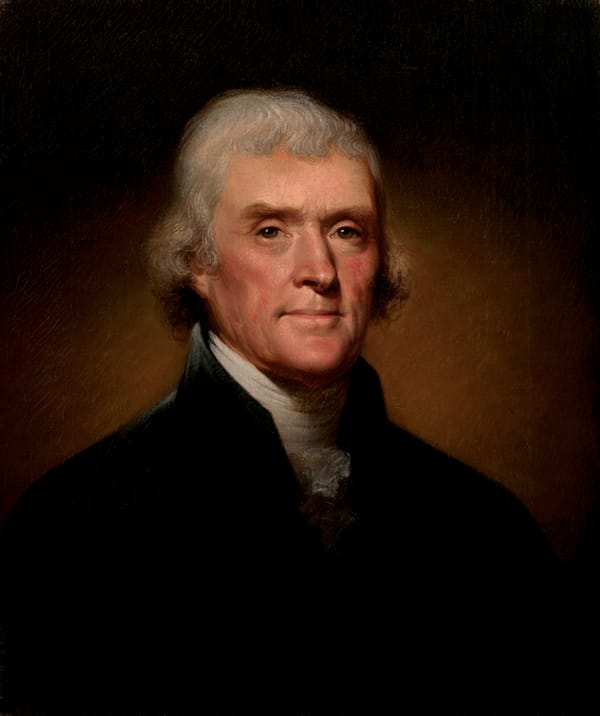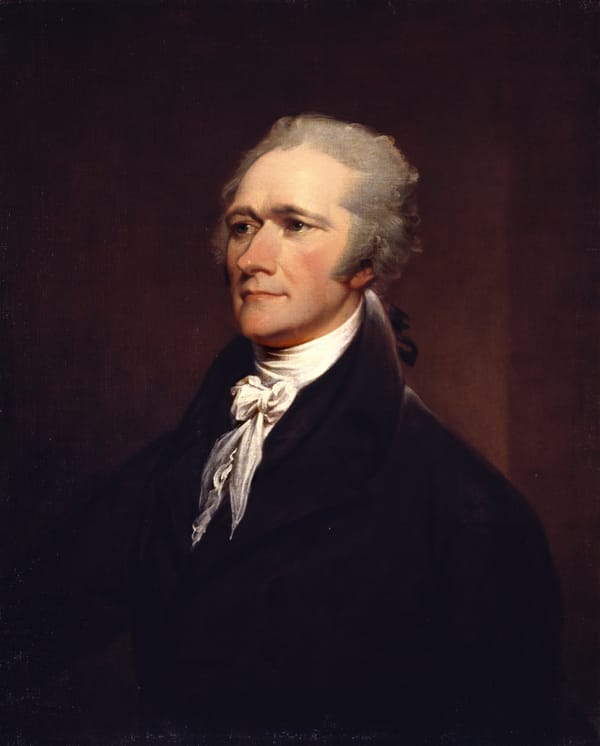Birthright Citizenship, Text vs. History, and "Original Public Meaning"
Over the last couple of weeks we've been having an exceptionally tiresome debate about birthright citizenship. Two conservative legal scholars, Randy Barnett and Ilan Wurman, have been arguing in various public fora that the overwhelming scholarly consensus that the Citizenship Clause of the Fourteenth Amendment means what it plainly says is wrong. Their arguments are bad, and are not worth engaging with. However, I think there's an interesting point to be made about the role of the modalities in the sleight-of-hand that they're playing. (See here if you don't know what those are.)
Barnett and Wurman are self-professed "originalists," you see. But exactly what is "originalism"? It's natural, upon skimming through the list of the six modalities, to say "originalism is just historical argument." Or, to be a little more precise, "originalism is a legal ideology that claims that only the historical mode of argument is legitimate." But originalists of the last forty years might protest that this is not quite right. I wrote in my primer that historical argument concerns "the intentions and understandings of the people who adopted the Constitution," also known as the "original intent." This is what connects historical argument in constitutional law to the familiar dichotomy from e.g. contract law between honoring the text of an agreement or honoring the intentions of those who made it.
Way back at the beginning of the movement, in the 1970s and the early '80s, originalism was openly concerned with original intent. See, for example, Attorney General Ed Meese's famous speech to the American Bar Association in 1985. But this theoretical approach drew criticism, and in response a fellow by the name of Antonin Scalia proposed a different approach, focused on what he termed the "original public meaning." The idea was that we shouldn't ask what James Madison would have thought about a given question. Rather, all we should be doing is applying the text of the Constitution as it was understood by the ratifying public when it was adopted. Instead of poring through the records of the Philadelphia Convention of 1787, "original public meaning" (or "OPM") originalists will reach for, say, the 1785 edition of Samuel Johnson's dictionary. And if you say that they're following the original intent, they get cranky.
Here's the thing, though. I don't actually think the underlying theory changed very much. One way of thinking about the modalities, and especially about text and history, is that they offer a conception of what counts as law. What is it that binds us, that governs us? Historical argument says "the intentions of those who created the Constitution." In principle this needn't even be seen as a gloss on the text. Rather, the text is only an indication, a memorialization, of the Actual Law, which is the original intent itself as a freestanding thing. The Constitution consists of a body of commitments made by the People. These are recorded in the text, but what actually matters is the commitment itself, and therefore what the People understood themselves to be committing to.
I think this is still how OPM works. If you look at Scalia's early writings, one of his main points is that when someone like Meese pores over the record of the Constitutional Convention, they're misapprehending who the contracting party actually was. The delegates at Philadelphia were not themselves the people who mattered. They were just the lawyers, the drafters. The intentions that matter, therefore, are those of the People, the entire ratifying public, those on whose authority the Constitution was made. But this is kind of a problem, because the entire ratifying public is a great mass of people, most of whom never met one another. How can we even speak of their having "intentions?"
This is the point of original public meaning. The solution, Scalia said, was to impute to the People as a collective the intention to do, well, what the text said and no more. Hence what matters is the text as it would have been understood by an ordinary but well-educated member of the ratifying public. But not because the text itself is law. That's still the corpus of original intent. The text matters because it's our only access point to the original intent. Except that's not quite true. OPM originalists will also look at something like the Federalist Papers, or the debates at the ratifying conventions – or in Congress for subsequent amendments. It's only the proceedings at Philadelphia that are barred, and only because they were secret, and therefore could not have informed public understanding of the document.
Here's how all of this helps us follow Barnett and Wurman's sleight of hand. We can start with the text of the Citizenship Clause:
All persons born or naturalized in the United States, and subject to the jurisdiction thereof, are citizens of the United States and of the State wherein they reside.
This is completely unambiguous and absolute, except for the "and subject to the jurisdiction thereof" qualifier. What does that mean? Well, jurisdiction means the scope of one's legal authority, literally the zone within which one has the power to speak the law. You can think of it as "how far does your writ run," in old-fashioned terms. The qualifier, therefore, limits birthright citizenship to people who were, at the time of their birth, subject to the legal authority of the United States. As it happens we know who the Framers of the Fourteenth Amendment had in mind here – Native Americans and children of diplomats or invaders. But even without dipping our toes into historical argument, the text would give us a standard to apply, which would lead to more or less the same result.
But that's not the result Barnett and Wurman have in mind. Hence they spin this yarn of how citizenship was understood as a reciprocal bargain of allegiance for protection, and how this means that illegal immigrants, who are not (in their view) parties to the social contract, must be excluded. But what are they arguing, exactly? The text very plainly does not say any of that. What they must be arguing, then, is that notwithstanding the plain meaning of the text, the actual intention behind the provision was something different.
But we know what the paramount intention of the Citizenship Clause was! It was meant to repudiate entirely the Supreme Court's decision in Dred Scott v. Sandford (1857). And the Barnett/Wurman reading would not accomplish that paramount goal. To find in the intentions of those who made the Fourteenth Amendment something that would frustrate their paramount intention is, I daresay, incoherent.
It is only by weaving back and forth between text and history, by pretending that OPM is not really about intentions at all, that they are able to make it seem even colorable. "Ah yes, they may have meant to do that, however we're not talking about intentions here, we're talking about text, and the text says something else." But that last assertion can only make any sense if it is itself a claim about intentions. So the whole thing collapses.
(Technically there is another relevant modality here. In fact I think what they're really trying to make is an ethical argument. The whole protection-for-allegiance thing is a claim about the character of the American state. But again, modal clarity is devastating to bad argument. Because that is very plainly not the character of our government, not anymore, not after the Fourteenth Amendment was adopted. That is instead the ethos of the Dred Scott decision, which the Fourteenth Amendment utterly repudiated.)

